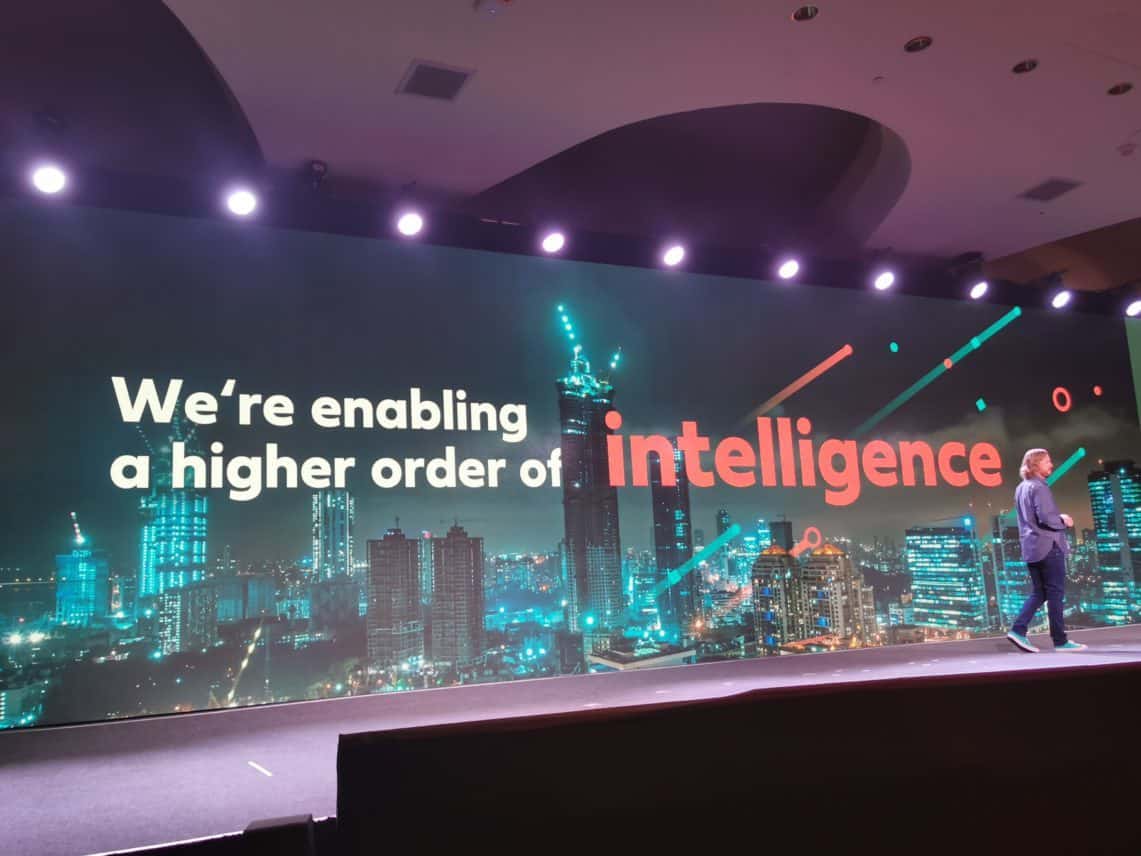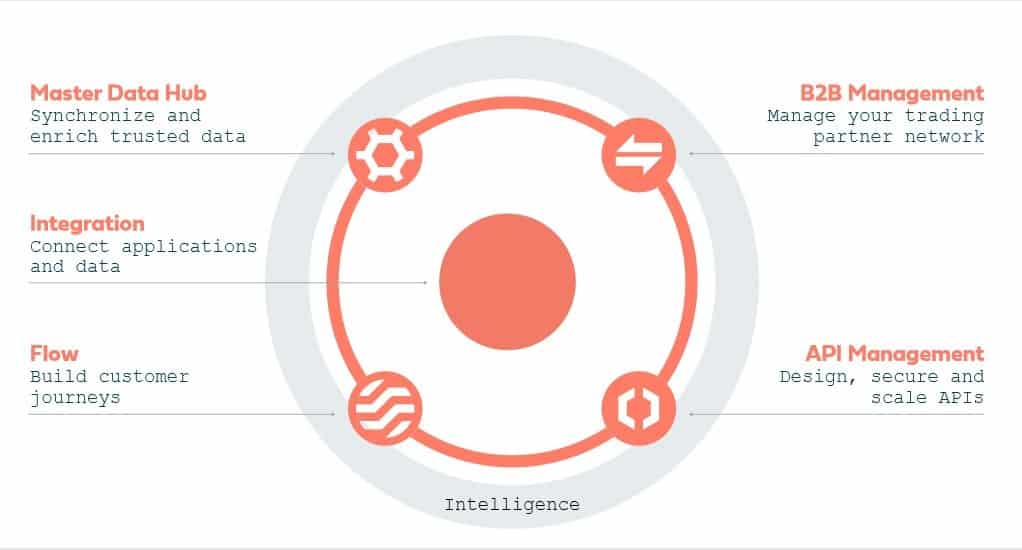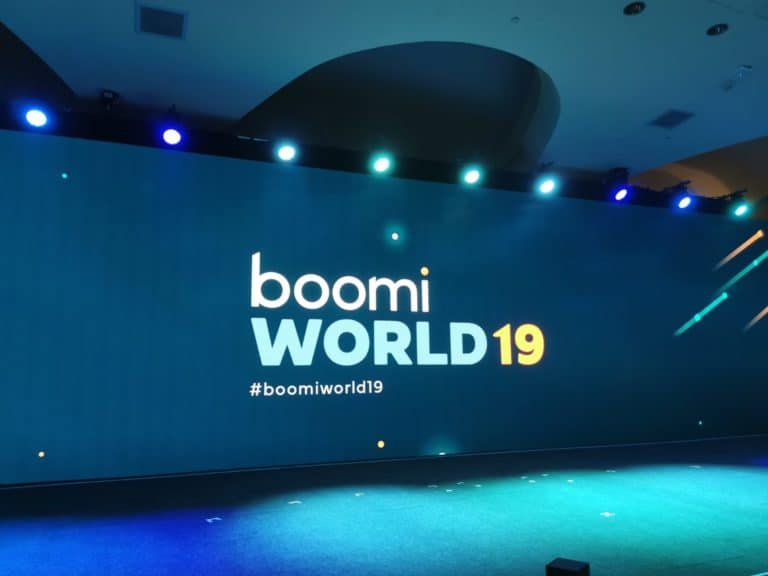During Boomi World in Washington DC, we got an update on Boomi’s iPaaS software. What struck us was that integration Platform as a Service (iPaaS) is now highly developed, so the Dell Technology subsidiary is looking towards the future with the software. The company is also talking about iPaaS 2.0, a milestone to be reached by adding an intelligent framework. This can also be called intelligent infrastructure Platform as a Service, or simply intelligent iPaaS.
With iPaaS 2.0, Boomi does not want to change its core activities completely. The primary focus remains simply connecting IT solutions. To this end, it claims Application Programming Interfaces (APIs) of the solutions, in order to exchange data. Boomi knows many APIs for various applications. Think for example of ERP systems, IT service management software or human capital management software. Boomi supports and maintains the APIs of such solutions and provides connectors for them. This makes it relatively easy to extract data from an application.
The use of Boomi makes it easier to integrate services. If a developer independently decides to call up data from an external source, he has to figure out the entire API. However, the way in which the application is claimed can also change, as a result of which the retrieval of data can get stuck. This makes getting to know a single API and maintaining it a proper process, let alone knowing all the APIs that an enterprise organization uses. As a result, integration specialists are becoming more and more popular, and they have become very good at it. Boomi, therefore, looks at what else it can do with its iPaaS software.
Bigger focus on business
The next step for integration software was presented for the first time at Boomi World last year. Within iPaaS 2.0, artificial intelligence (AI) and analytics are applied to metadata. Metadata refers to anonymous data about data, which becomes visible by connecting point A with point B. Integration platforms basically have a lot of this type of data. Boomi estimate that their platform processes about 30 terabytes of metadata, which is considerable for iPaaS software.
You can think of different types of metadata. Integration platforms contain simple data about a customer (such as the full name and the IP address), but also, for example, the operating system on which a customer runs an application. Ultimately, the information on an iPaaS platform is very varied, as companies use it to integrate many systems within their company. A CRM package tells something completely different about the business than HRM software.

In theory, all metadata could be combined in a data lake, in order to apply an intelligent framework to it. In this way, connections can be made, and conclusions can be drawn. When the right filters and layers are applied to the metadata, there is no doubt that there are some things that can be told about the business. If these results are also linked to the right departments and managers, they can take steps to make the company more efficient.
Insights as a big step
With this idea, Boomi adds Insights to its platform. Insights is a feature within API Management, the part of the Boomi platform that is used to configure APIs. Links can be undone within this component, and certain permissions for access to the data can be modified.
One of the first insights that will make this functionality possible will focus on data privacy. Where is the customer’s data currently located, and where does the data also remain in the place where it is supposed to be? Thanks to the GDPR, this is a priority on the agenda of many organisations in Europe. Highly regulated sectors such as the financial sector are even more concerned about this, as even stricter rules apply there. Data from e.g. a Dutch customer may not suddenly move to Japan, to take a random example.
Boomi can accurately map out where the customer is located. For example, a connection is made to an application. An IP address, URL and the first and last name of a customer can be linked to it. Insights uses these metadata to create links and visualize them on a map. In this way, you can actually see whether data remains in the country in question, or whether a certain integration process ensures that data flows to a country to which it is not allowed to go. If the latter is the case, Insights can also show how often this happens and how much data is actually flowing in the wrong direction. Action can then also be taken on this.
The ultimate goal of Dell Technology’s subsidiary is to provide more insights than just data privacy. Among other things, the company looks at how it can provide valuable insights to sales and financial teams, e.g. by giving them concrete insights into the number of invoices.
Infrastructure for iPaaS 2.0 is in place, release of features is underway
Boomi could roll out these new Insights relatively quickly. The company has set up complete infrastructure to realise iPaaS 2.0. Within this infrastructure, technology has to be custom-built. A certain feature within the infrastructure is used to prepare the data, while another is used to manage the data. Because all of this is now in place, data science work can be done much faster.
This is a big difference compared to the previous Boomi World event, where intelligent iPaaS was more or less revealed as the next step without concrete feature releases. This has now been changed by actually having an intelligent framework with which intelligent features can be added consistently. Chief Product Officer Steve Wood made it clear to us that building the infrastructure is the starting point for iPaaS 2.0. There will be many more intelligent features coming to the platform.

At the end of September, Boomi released suggested filters as the first intelligent feature. These filters can be applied to a dataset when setting up a process. The intelligent framework builds such filters independently and introduces them. Normally there is a lot of manual work involved in building these filters.
These suggested filters in combination with the upcoming Insights seem to indicate that the integration platform introduces features to take work off the hands of developers, as well as functionality to support the actual business people.
Integration platform will appeal to more employees
Boomi remains a party that is very good at solving integration issues. The company has a great deal of knowledge about the APIs within the current IT landscape so that developers can connect almost all commonly used systems. Boomi focuses on that message, and that doesn’t change all of a sudden.
However, the company is also working on adding intelligent services, which it calls intelligent iPaaS. The introduction of automatically generated filters to apply to datasets and certain insights about an organisation are the first steps. However, we can expect much more in this area. The intelligent framework has just been conceived and will take on an increasingly prominent role on the platform. We are therefore looking forward to the future for Boomi.
